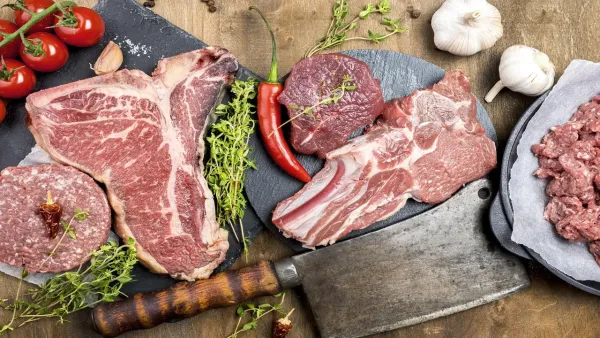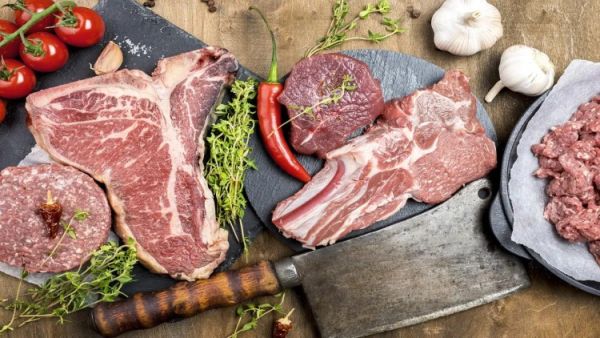
Because lean meat has less calories and fat, it is regarded as a good source of protein.
Although the use of antibiotics in chicken farms has drawn criticism, it is generally considered to be a safe protein source.

Lean meat: what is it?
Lean meats, such as skinless chicken, turkey, and red meat like pork chops with the fat removed, are distinguished by their decreased fat content.
Whereas the skin of chicken may contain up to 80% of its fat content, the skin of a pork chop makes up the majority of its fat content, making up about two-thirds of the total.
What Health Benefits Does Lean Meat Offer?
In addition to being a great source of protein, lean meats also have the advantage of having less calories than non-lean meats. They are especially well-liked by those who stick to low-fat and low-calorie diets.
Lean meats like poultry are particularly high in important nutrients including choline, selenium, and vitamins B3 and B6. Because of its well-known antioxidant qualities, selenium successfully protects cells from the harm that free radicals may cause. It also contributes significantly to immune system support.
Poultry contains vitamins B3 and B6, which help the body turn carbs into glucose, which is an essential source of energy. Vitamin B3, often known as niacin, helps the body produce sex and stress hormones and maintain hormonal equilibrium. Conversely, choline has anti-inflammatory qualities that may aid in lowering inflammation and is important for preserving normal nerve function.
What are the disadvantages of lean meat?
Antibiotic-resistant illnesses in humans, such as urinary tract infections, have been linked to the widespread use of antibiotics in poultry production. Regulations have been put in place to restrict the spread of antibiotics to people via the eating of chicken in order to allay this worry. Those who are still on the fence, however, may choose to choose organic or antibiotic-free chicken.
The body benefits from the modest amounts of purines found in lean meats, such as chicken. Gout sufferers should be mindful, however, that consuming too many purines might increase the likelihood of gout flare-ups. Therefore, in order to properly manage their condition, vulnerable persons should consume lean meats in moderation and take other dietary choices into consideration.
Food Hygiene and Lean Meat
Preparing chicken requires caution, just as it does when handling and cooking other kinds of meats. The two biggest dangers are undercooking the meat and handling or storing it incorrectly. To reduce these dangers:
1. After handling raw meat, always be sure to wash your hands and utensils thoroughly.
2. To get rid of dangerous germs, make sure the meat is cooked through before eating.
3. To avoid possible bacterial development, do not reheat cooked beef more than once.
You may greatly lower your chance of contracting foodborne diseases linked to eating meat by adhering to these recommendations.